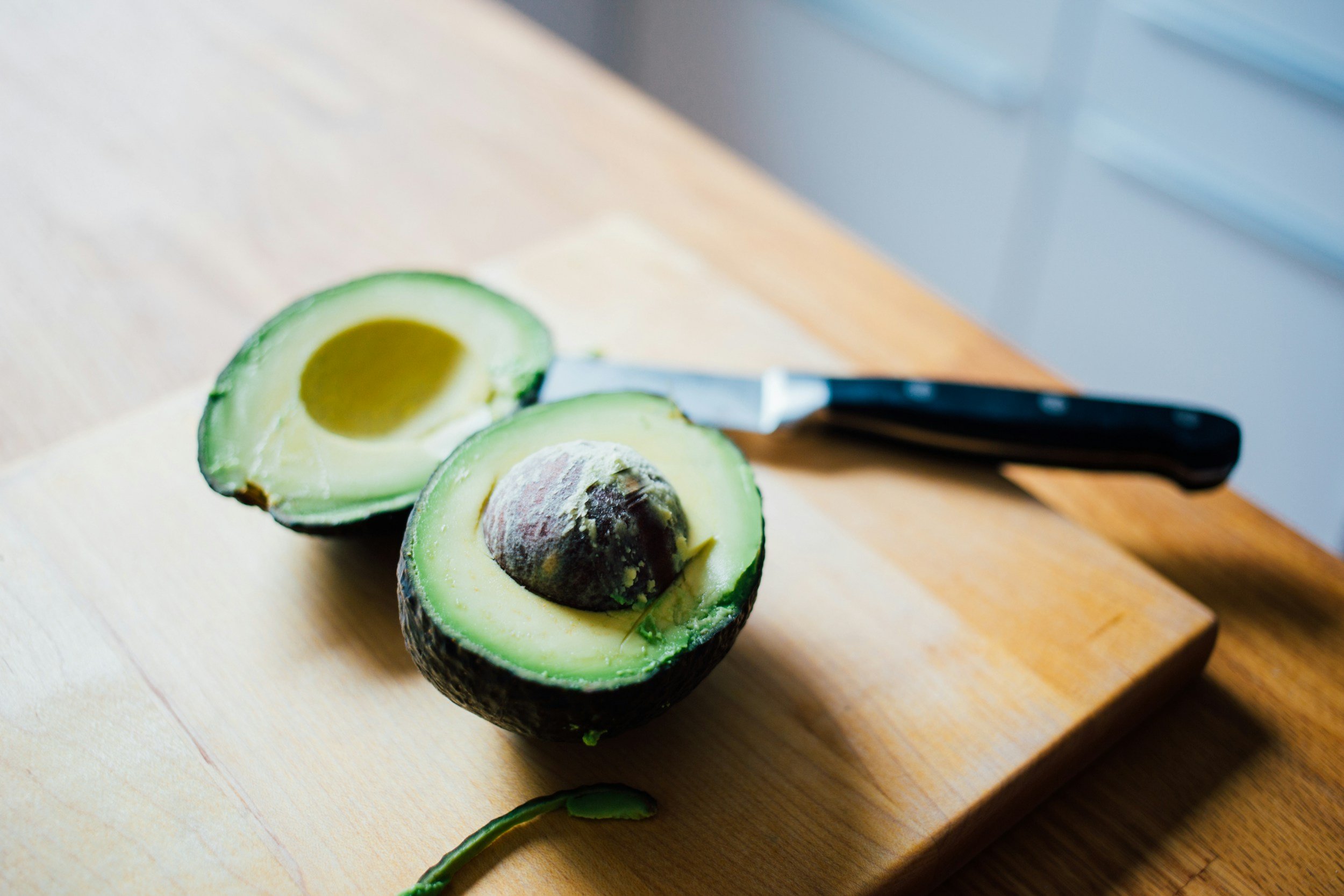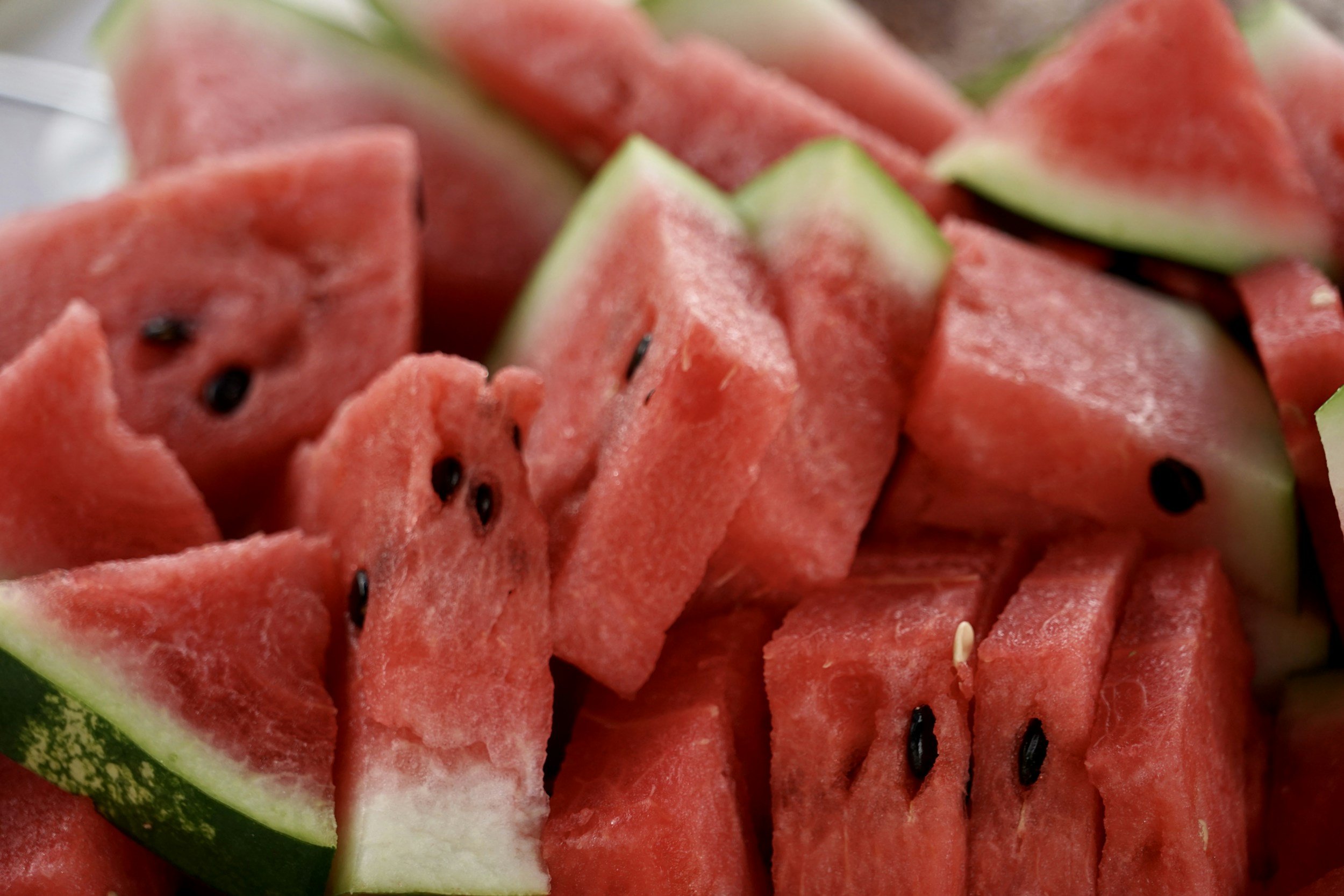Food for Cancer Patients: What to Eat During and After Treatment
If you’ve ever stared at the fridge full of food and still felt like there was nothing you could eat (because - cancer…) you’re not alone.
“I just don’t know if the things I like to eat are safe anymore,” - said one of my clients early in her treatment.
She had always considered herself a pretty healthy eater — but once she was diagnosed with cancer, everything she thought she knew about nutrition suddenly felt up for debate. The internet said one thing, friends and family said another, and the handout from her cancer clinic felt overly generic.
Figuring out what to eat during cancer treatment can feel overwhelming. Between the physical side effects (hello, nausea and taste changes), poor appetite, and the emotional weight of a diagnosis, food often becomes more complicated than comforting. And yet, eating well during and after treatment can be one of the most powerful things you do right now to support your body.
In this post, I’ll walk you through:
✅ What to eat to support energy and recovery
✅ How to adjust when side effects hit hard
✅ Simple, practical strategies that actually work in real life — even on your most exhausted days
Whether you’re mid-infusion or just starting to get your strength back post-treatment, this post is here to help you feel more confident, less stressed, and more in control of your plate.
Why Nutrition Matters During Cancer
When you're going through cancer treatment, food isn't just food — it’s actually part of your treatment plan. Let that sink in. Your food is your energy - it’s what will keep you strong, support your immune system, and it’s the literal building blocks to helping you recover from one of the most demanding times you’ll ever experience.
Eating well can help:
✅ Support your body in tolerating treatments like chemo, radiation, immunotherapy, or surgical recovery
✅ Keep your immune system functioning as best it can
✅ Maintain muscle, energy, and strength so you can stay active and recover quicker
But let’s be clear: “eating well” doesn’t mean eating perfectly.
There’s no award for cleanest plate or most organic meals. Nutrition during treatment is all about consistency over perfection. What matters most is that you're nourishing your body in a way that’s doable based on your experience during cancer.
If you’re curious about the science behind how food supports recovery, I break it down more here:
👉 How Nutrition Supports Cancer Recovery
Best Foods for Cancer Patients
Protein (for healing & strength):
Protein helps your body heal, maintain strength, and recover from treatment — and your needs may be higher than usual right now - especially if you’ve had weight loss. Aim to include a little protein at each meal or snack from sources like:
Poultry (chicken, turkey)
Fish (salmon, tuna, cod)
Eggs
Dairy (Greek yogurt, milk, or cottage cheese)
Beans and lentils
Nut butters (peanut, almond)
Tofu
Seeds (hemp, sunflower, chia)
Protein drinks or powders
Check out these high protein snacks for days you feel better eating smaller portions Easy High-Protein Snack Ideas
Healthy Fats (for energy & inflammation):
Healthy fats provide long-lasting energy and can help calm inflammation — something your body may need more of during and after treatment. Try including a variety of sources like:
Avocado
Olive oil
Nuts (almonds, walnuts, cashews)
Seeds (chia, flax, sunflower)
Nut butters
Fatty fish (like salmon, mackerel, sardines)
Olives
Fiber-rich Carbs (for digestion & energy):
Carbohydrates give your body quick and steady energy, and fiber-rich options can also support digestion and gut health during treatment. Try including foods like:
Oats
Sweet potatoes
Brown rice
Quinoa
Whole grain bread or pasta
Lentils and beans
Fruits with skin (like apples, pears, berries)
Hydrating Foods:
Staying hydrated is essential during treatment, especially if you’re dealing with side effects like fatigue, dry mouth, or low appetite. In addition to drinking fluids, you can boost hydration with water-rich foods like:
Soups and broths
Smoothies & shakes
Watermelon
Cucumbers
Oranges
Strawberries
Zucchini
Popsicles
Antioxidant-Rich Foods:
Antioxidants help protect your cells from damage and support your body’s recovery during and after treatment. Try to include a variety of colorful, plant-based foods like:
Berries (blueberries, strawberries, raspberries)
Leafy greens (spinach, kale, arugula)
Cruciferous vegetables (broccoli, cauliflower, Brussels sprouts)
Bell peppers
Tomatoes
Citrus fruits
Green tea
Turmeric
Ginger
Garlic
Quick note: It’s best to focus on getting antioxidants from whole foods rather than supplements, which can sometimes interfere with treatment.
What to Eat When You Have Chemo Side Effects
Cancer treatment can bring a variety of side effects that make eating challenging. The good news? You can adjust your food choices to help manage symptoms and keep your nutrition on track.
Nausea:
When your stomach feels unsettled, soothing and easy-to-digest foods are key.
Ginger or peppermint - try teas, lozenges, or ginger chews
Easy carbs like plain crackers, toast, pretzels, or mashed potatoes
Cold, bland foods (like applesauce or chilled fruit)
Small meals/snacks can be helpful. Eat a few bites every hour.
Stock your pantry with these side effect friendly foods during treatment: Cancer-Friendly Grocery List.
Fatigue:
Low energy calls for nutrient-packed, easy-to-eat options to keep you fueled throughout the day.
Nutrient-dense snacks (trail mix, protein balls or bars, cheese, eggs, yogurt, peanut butter)
Smoothies or protein shakes - liquids take less energy to eat & digest.
Small, frequent mini meals
Try these meal ideas when energy is low: Quick Easy Meals For Chemo Days
Taste Changes:
If food tastes metallic, bland or off, adding flavor with herbs and acids can help improve appetite and enjoyment.
Marinated proteins (using herbs, citrus juice, or vinegar)
Fresh herbs
Acidic ingredients like lemon or vinegar
Avoid metal utensils if metallic tastes are bothering you
Mouth Sores:
Soft, moist foods help protect sensitive mouths and make eating less painful.
Yogurt
Soups
Mashed potatoes
Cooked cereals
Smoothies - check out these recipes
Include sauces or gravies with foods
Avoid acidic (citrus, tomato, vinegar) and spicy foods (chili, pepper, cinnamon)
Diarrhea or Constipation:
Adjust fiber intake based on symptoms to support healthy digestion.
For diarrhea: low-fiber foods like white rice, bananas, and applesauce
For constipation: high-fiber fruits, vegetables, whole grains, and plenty of fluids
Check out this post to learn about how different types of fiber impact GI side effects: Understanding Fiber
Meals vs. Snacks: What Matters Most During Cancer
Here’s the truth: there’s no “right” way to eat during treatment. Some folks thrive on three solid meals a day, while others need to nibble all day long just to keep their strength up. And both are totally okay.
What really matters isn’t when you eat—it’s what you eat. Nutrient-dense food packed with protein, good fats, and energy is the star of this show. So if you’re not feeling up to a full meal, small snacks that add up throughout the day are just as valuable.
If your appetite is doing the classic cancer-treatment rollercoaster thing (and honestly, whose isn’t?), try leaning into those mini meals or snacks. They’re easier to manage when you’re tired or nauseated, and little bites all day long add up!
How to Eat When You’re Not Hungry During Cancer
Foods to Limit or Avoid During Cancer
Listen up real close - this isn’t about “good” vs. “bad” foods — it’s about giving your body the safest, most supportive fuel during a time when it’s doing a lot of heavy lifting.
But inevitably - there are a few foods and habits to be mindful of during and after treatment:
Excess alcohol: Alcohol can interfere with treatment and weaken the immune system. Additionally, it’s a known carcinogen. It’s not ideal to consume alcohol during treatment but if you do drink, talk to your care team about what’s safe for you. After treatments, it’s important to know the risk. The cancer risk goes up the more alcohol that’s consumed. Finding a balance that feels right for you is key.
Highly processed, ultra-sugary foods: You don’t need to swear off sugar completely (promise!) — but a diet heavy in ultra-processed snacks or sweets can crowd out the nutrients your body needs. Sugar isn’t the enemy - but we need to pay attention to what foods it could be replacing (which may be really important for your health right now!).
If you want to know more about the cancer & sugar relationship, I’ve got a whole blog post on this 👉 Do I Need to Avoid Sugar During Cancer?
Undercooked meats: Treatments like chemo can lower your immunity, making food safety extra important. Make sure all meats are fully cooked and no cross contamination happens in the kitchen (if utensils or cutting boards touch raw meat, make sure to wash them before using for other foods).
Raw foods if immunocompromised: If your immune system is suppressed, go easy on raw sprouts, sushi, fermented foods or unwashed produce. Cooked foods are safer and often easier to digest.
The goal isn’t perfection — it’s being informed, flexible, and supportive to what your body needs right now.
Tips to Make Eating Easier During Cancer Treatment
Let’s be honest — cooking (or even thinking about food) can feel like a lot when you’re going through treatment. The goal isn’t gourmet. It’s good enough to keep you nourished and feeling supported. Here are some tips that can take the pressure off:
Batch cook when you can — or better yet, stock up on easy-prep meals like soups, frozen entrees, or anything you can just heat and eat.
Smoothies are your best friend when your appetite dips. You can sip them slowly, and they’re an easy way to sneak in protein, fruits, veggies, and calories.
Keep high-calorie, high-protein snacks around — things like nut butters, trail mix, Greek yogurt, or protein bars. Easy to grab, easy to eat.
Let people help. Seriously. If friends or family want to bring you meals or send delivery, say yes. One less thing for you to think about. Friends & family always want to know if there’s anything they can do for you during treatment - let it be this!
These small strategies can make a big difference in helping you stay nourished without burning through your energy.
Emotional Eating, Guilt & Food Anxiety During Cancer
Food gets complicated after a cancer diagnosis — and not just physically. The emotional side of eating is just as real. You might find yourself eating out of stress, avoiding certain foods out of fear, or feeling guilty for not eating “perfectly.” If that’s you, you're not alone. This is such a common — and completely human — response.
Here’s what I want you to know: emotional eating doesn’t mean you’re doing anything wrong. And worrying about food is a natural reaction when so much feels out of your control.
But food isn't supposed to be a source of fear. It’s okay to loosen the grip a little. One meal, one snack, one “off” day isn’t going to make or break your healing. And it definitely isn’t going to make your cancer worse. What matters most is consistency, flexibility, and giving yourself grace.
The goal isn’t perfection. It’s nourishment — in whatever way feels manageable today.
When to Get Personalized Cancer Nutrition Help
Sometimes, the generic advice just isn’t cutting it — and that’s when personalized support can make all the difference.
You don’t have to figure this all out on your own, especially if:
You’re not eating enough or are unintentionally losing weight
You're struggling with ongoing nausea, bloating, or other digestive issues
You feel overwhelmed and unsure what’s actually “safe” or supportive to eat
If any of that sounds familiar, it might be time to get some 1:1 guidance tailored to you and your treatment plan.
💬 Want support that actually fits your real life? Book a free Discovery Call or learn more about Nutrition Coaching to get the help you deserve.
Common Questions About Food for Cancer Patients
-
Yes — in moderation. You don’t need to cut out all sugar, and doing so can often create more stress than benefit. The key is to focus on balanced meals with protein, healthy fats, and fiber, which help support your body and stabilize blood sugar.
👉 Read more: Do I Need to Avoid Sugar During Cancer?
-
Plant-based diets can be great for cancer support, especially when they’re rich in whole grains, legumes, fruits, and vegetables. But “plant-based” doesn’t have to mean vegetarian or vegan. You can absolutely include poultry, fish, eggs, and dairy — it’s about including more plants, not excluding everything else.
-
Go for a balanced, easy-to-digest meal with protein and carbs — think oatmeal with nut butter, toast with scrambled eggs, or a smoothie with Greek yogurt and fruit. Avoid anything super heavy or spicy, especially if you’re prone to nausea. Plus - don’t forget to drink plenty of fluid!
-
Not always — and in some cases, certain supplements can interfere with treatment. It’s best to focus on food first and talk with your care team or a dietitian before starting any vitamins or supplements.
-
Yes — with a few extra considerations. Stick to places you trust for food safety, and choose cooked foods over raw if your immune system is compromised. Eating out can actually help reduce food fatigue and bring some normalcy to your routine.
Real Cancer Patient Stories: What Helped Most
One of my clients used to feel totally stuck after chemo. Her appetite would come back, but nothing sounded good. She felt like she “should” be eating all the foods that were supposed to be good for her — veggies, whole grains, balanced meals — but when she tried, they just didn’t sit right. The textures, the flavors, even the idea of them made her feel more unsettled.
When we started working together, we made a simple but powerful shift: for the first day or two after chemo, we let go of the pressure to eat “perfectly” and focused instead on what her body could actually tolerate. That meant dialing back on fiber and focusing on easy-to-digest, bland carbs — things like toast, crackers, rice, or plain pasta.
Not only did this help ease her stomach and make it easier to eat more, but it also took away the guilt. She wasn’t failing — she was fueling in a way that made sense for her. And that mindset shift made all the difference in her recovery those first few days after treatment.
Need Support with Nutrition During Cancer?
If you're feeling overwhelmed, under-fueled, or unsure what’s actually helpful to eat during treatment, personalized support can make a world of difference. My 1:1 nutrition coaching is designed specifically for people going through cancer — no rigid plans, no judgment, just real-life strategies that work with your body, side effects, and lifestyle.
Together, we’ll create a plan that helps you feel more confident, more nourished, and more in control — one meal (or snack) at a time.
💬 Ready for support that meets you where you are?
👉 Book a free discovery call to get started.
Let’s Connect!
Follow along @wellness.cancer.dietitian
Plus stay in the know by signing up for the Wellness Cancer Dietitian Newsletter 👉 HERE and get updates, support, and special offers delivered right to your inbox!












